I thought I would begin to share my experiences of applying for another Partnership Grant from the Royal Society, so that you can see the stages as I apply. I have no guarantee that I will be successful but you can join me on my journey if you would like. I will make this one long blog post to keep it all together, so when I update this blog piece, newer posts will appear at the bottom. I will try to alternate the colour of the post so that you know it has been updated.
30/11/17 Just been asked for a quote for the Partnership Grant in 30 words! I think that is a difficult ask. This is what I got…..
“This is our second grant and again we’ve found amazing partners, who are keen to share their love of Science with the next generation. We, (mainly the students) are currently testing student and staff hearing and finding out the volume of the music in their ears. It is a chance to get the whole school talking about Science and it is especially attracting those who don’t normally get involved. One student got to test his dad, and was well satisfied when the audiologist at the hospital got the same trace. I would recommend all schools being involved, you get so much out of the partnership, but don’t think it is going to be a breeze, it’s hard work, but highly rewarding. Thanks to our partners at MRC in Scotland, who’ve set us up so well.”
….and here is a link for those who might want to consider their school join the Associate Schools and Colleges Programme from the Royal Society- a cracking great idea!
Associate Schools and Colleges Leaflet 2017
Wednesday 22nd December
Caught the bus to Glasgow today as I had a meeting with some great people at the New Lister Building. They are part of MRC which is part of Nottingham University, but housed in Glasgow University- it’s a long story. We were there to discuss ideas for a possible new Partnership Grant Scheme. After taking a short cut, which totally by-passed where I was meant to be at the New Lister Building, I was politely guided to the building and floor where I was met by Dr Graham Naylor, Section Director of Medical Research Council/Chief Scientist Office Institute of Hearing Research – Scottish Section. He introduced me to two of his team, Owen Brimijoin and Bill Whitmer. What a great team.
I had contacted them on 4th December over a query I had and a theory. After many years of teaching I have a hunch that student hearing is deteriorating with the likely cause earbuds and headphones almost permanently plugged in to music with the other end directly into the students’ ear canal. This was my initial contact email that I made, after finding Dr Naylor’s details during an internet search.
Good Morning,
I am a Physics teacher at Lockerbie Academy and from an Associate School of the Royal Society. I have exhibited with a group of students at the Royal Society Summer Science Exhibition.
I have a query and proposal. As part of our Physic topic we check the sensitivity of our students to hearing high pitched sounds. I have a theory that those who use earplugs for their music are detrimentally affecting their hearing as a greater proportion of students can no longer hear to such high pitched sounds, although it could be our equipment. I wonder if you have a Scientist who would be prepared to be our scientist as we apply for a grant of up to three thousand pounds to test this with our students. I propose that the money be spent on high quality equipment and then we would train the students to use the equipment and test all students (who give permission) in our 14 associate primary schools and the secondary students too. We would accompany this with a questionnaire about use of headphone habits.
We are based in a rural school in Dumfries and Galloway. Does anyone in your organisation think this is something we could do and would have benefit. We could do this as a long term study and short term mass study. Do you think good equipment could be purchased for this price and are there dangers of exposing young children to high pitched low volume sounds? I enclose a link to the partnership grant scheme and trust that this can get through your email system. https://royalsociety.org/grants-schemes-awards/grants/partnership-grants/
Within two days I had this wonderful reply.
Dear Mrs Physics,
Thanks for your enquiry. It sounds like something we would be very happy to be involved in. I have had a brief discussion with some colleagues here about possibilities and challenges in your proposal, and other potential lines of investigation that might be worth thinking about too.
I think it would be good to have a chat about it all. In the first instance, probably a phone call, although you would be very welcome to visit us here to talk with 2-3 of us, then you could see what we do in general too.
To summarize our reactions to your initial idea of testing the high-frequency hearing of a lot of school students and comparing the results against questionnaire data on mp3 use;
– As you are surely aware, your theory corresponds to a suspicion which is widely held, by laypersons and scientists alike. So far however, the scientific evidence has been surprisingly inconclusive. There are many possible reasons for that, but in any case, we think it is unlikely that a programme like the one you propose would turn up more conclusive results. And I imagine that you would prefer to set your students a task where there is a high probability of a significant result, as null results are not very motivating, and are hard to communicate as exciting.
– The apparent trend towards worse hearing in your students could well be explained by your equipment drifting off calibration rather than actually worsening hearing. A new basic audiometer for your use could be had for about £1200. However, reliable measurement of hearing thresholds at high frequencies is very tricky, and requires much more expensive equipment and a proper sound-insulated test booth (because the results are very sensitive to any background noise).
We brainstormed a few alternative projects which might be doable and produce some more tangible and distinct results. The most tractable in my opinion would be to have the students (i) measure the sound levels coming out of people’s mp3 players, (ii) do questionnaires with them about listening habits (incl. hours/day), (iii) use these data to estimate total noise exposures, and (iv) compare those exposures against Health & Safety limits. We could discuss what equipment would be needed, and/or how we might be able to help.
I am optimistic that we can work out something together, and I look forward to hearing from you.
So there we were the four of us sitting in a room with coffee and very high class biscuits discussing really interesting ideas. My current knowledge of sound is from what I’ve taught, experienced and read, mainly from Sonic Wonderland and all the Physics that is on school courses. I explained about my previous experience of the Partnership Grant scheme and what I had in mind. It was a real brainstorm session, with ideas flowing from everyone and Graham doing a great job of listening and thinking and then giving his thoughtful responses. I can’t say that I understood a vast quantity of the technical stuff; but I was certainly determined to find out by the time I left. So many ideas and problems were discussed and various options were thought through. My main concern is the requirement for any ethics committee to have to approve our proposals. I don’t think I am in a position yet to give details of our final ideas as it involves contacting lots of other people, but I certainly finished the meeting inspired and I think the MRC team were pretty excited too, although it was their last day before the holidays and I think they were quite looking forward to the time off. They are obviously very busy people so it was so kind of them to take time off to talk to me.
Before I left Bill and Owen took me on a tour of their facilities and allowed me to raid their library and borrow two books, which I promised to read and return straight after the holidays. The three sound booths were impressive and I’ve never seen a double door like that before.
Thanks guys for your time and I look forward to working with you.
Tuesday 27th December
Woke to find an email from a very enthusiastic CL in Currie wanting to know about how to put the application for a Partnership Grant together. I tried to give as much useful advice as I could. I hope that she is successful in finding a source of funding, it sounds like she has some great ideas.
Mrs Physics started putting together the grant application today. As our Partner hadn’t registered yet I couldn’t get at the questions, unless I checked out one of the example applications. Luckily I had my previous application so I took the questions from this as a basis for our new application. The title has been stretching me!
Hooray- got an email this evening from Dr Naylor, he’s registered and solved the title problem. My title was “Sounds- like a problem to solve”. His idea was considerably better “Hear today- gone tomorrow?” Once the Partner has registered, the application process and all the questions can be accessed. I can now add material directly to the online application.
Do get the title right though. It says you can change the title, which you can, but it generates a new application, and I still have one called “Dud” from the previous application which I can’t delete. Drat, again I’ve two applications as I didn’t carefully copy Dr Naylor’s suggestion, despite several trips back and forth to check the email. Oh well.
Wednesday 28th December
Tried to telephone the Scottish Office Ethics Committee today, to see if there is conflict between what we want to do for our project and any potential ethics problems, with getting data from students. There was no answer and I suspect they are on holiday. It is funny how teachers get a bad press for having so many holidays, but not other members of the community.
Not all teacher holidays are spent chilling out!
I have found an email address for the contact at the ethics committee as there was no response to the phone call. I sent the draft of this email to our partners for checking. I hope they can still get on with the day job, despite my interruptions.
Wednesday 4th January
Just got a reply from the Manager/Scientific Officer West of Scotland Research Ethics Service about my initial email about whether we need permission from the ethics committee. I must put all of this into my initial background. I briefly overviewed what we planned to do and here is part of her reply.
Thank you for getting in touch regarding your recently funded project. The NHS ethical review system would normally look at NHS patient research and a few specific categories of medical research out with the NHS. The proposed research has the possible ethical issue of an incidental finding through the hearing test. You have clearly stated how that will be handled which seems reasonable. It may be useful to run this through a University ethics committee and I see that Dr X which would give you access to their ethics committee.
The only other comment would be to ensure that you have something built in to cover any students who may have a known hearing disability and how will that be handled. Will this be an exclusion criteria?
Please don’t hesitate to get back to me if you have any further questions.
Fifex have agreed to build our model head, but that would cost at least £3000, and wouldn’t give us any spare cash. We will have to look into this, at least we are beginning to see what can be done.
I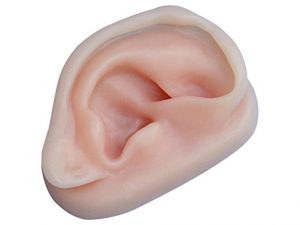 hope I can get some advice at the ASE Conference on Friday and Saturday. Hope to see some of you there!
hope I can get some advice at the ASE Conference on Friday and Saturday. Hope to see some of you there!
I think things are moving on. I spent an hour looking at Mannequins to see if any were likely to be suitable and I found an amazing ear! Maybe that is something we could adapt.
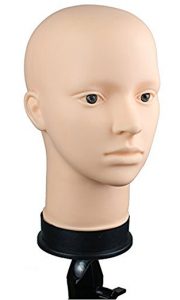

Scary eh! Now what is the politically correct colour and gender of our mannequin?
Friday 6th January 2017
Just been to the ASE CONFERENCE. It was a great opportunity to discuss our plan for the partnership grant. I had a lovely chat with Andrew from the NPL, caught up with the lovely staff from the Royal Society to get help with the application, Steven had already realised Lockerbie Academy had started a new application. I also had a chat with Fred Young from SSERC. I’d already contacted Gregor Steele, but emailed him again to get his views. We’d better get this budget sorted. When I get home I think I ought to start filling in the form rather than working on a word document.
Burn’s Night
Oh heck how did it get to 24th January? I still haven’t got the final application in and I am worried about the time frame now. I will be cutting it really tight. I am getting nervous that all the people I have got to help me on this will have wasted their time, if we don’t get the grant. I’ve had a panic this month as I thought the partners had gone AWOL, and I am truly sorry I doubted them. They’ve been fantastic and are already working away doing amazing things in the background. Thanks guys. I still need to brush up my knowledge as there is plenty I’ve yet to get through and I must sort out the budget. With this project there is so many unknowns that it is quite hard to cost, but I also know that the school has zero spare cash and will not be able to commit any money to this project. If it isn’t funded by the Royal Society I will be so disappointed as so many people have worked so hard.
I’ve also heard that I was unsuccessful on the UK Space Bid and getting Tim Peake to D&G- sorry folks of D&G, we are “too rural”!
I’ll try to fill you in about many of the meetings, conversations and research that has been happening, but I had better go and look over Owen’s email again as he has given me loads of feedback on my bid. (Thanks Owen!) Thought this post ought to be pink in recognition of the head we have acquired!
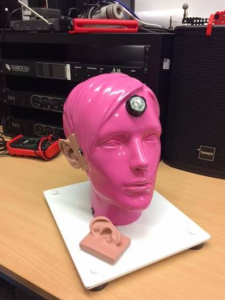
I think this head is terrifying and well …..pink! As for that light in it’s head, I think this could feature in an episode of Dr Who! If it does the trick I am one happy woman. If this project gets funding remind me to get a photo of pink head with Chuckie from our last exhibit!
Monday 30th January
Phew, the bid is finally submitted. It was a close call. I had to redo so much over the weekend. Our Partners wanted to see the final draft, which is fair enough. So I was waiting for replies this morning, before I could submit it. It was quite intense. It is now out of our hands.
I did have a final worry that I couldn’t delete the empty costs box. I just had to write in “this box should be deleted”.
Tuesday 11th April
I contacted the Royal Society last week as I thought it was strange that I hadn’t heard anything about the grant. It turns out poor Steven has been unwell and so there has been a delay to declaring the results. It is funny that this should be on my mind now, it is obviously been something that I must have read somewhere hinting at the date of the announcement, but that I can’t recall consciously. I hope “Stevie What a Wonder” is feeling much better and can enjoy a basketful of Easter eggs.
Hooray I went into school today between visits to my sleeping mother-in-law. Between checking the glow email at the start of the day and getting into work I have had the results of the Partnership Grant scheme. Providing we can answer a few concerns and questions before Wednesday 10th May we have been awarded the Grant- whoopee!
Well my initial reaction was great, amazing, what a inspirational task we’ll be able to do with the students. We can do a long term study. My next thought was “oh heck” have I got time for this? I already feel overwhelmed by everything I need to do, can I be the only Physics teacher in the school, do my SQA work and be a partnership grant school?
However, I know that the students and staff will get behind this, and our wonderful partners, Dr Graham Naylor and his team, will ensure that it works out.
Well this is just the beginning of an exciting new project. We’ll keep you informed about its progress.
If anyone wants to get involved do sign up! I can’t get on to GLOW at the moment, it appears my computer is playing up, but I’ll add the reply when I can get hold of it.
Dear Mrs Physics and Dr Naylor
Following a meeting of the Partnership Grants Allocation Panel, I am pleased to inform you that your application for a Partnership Grant was successful and an award has been approved for the project ‘Hear today, gone tomorrow?’. This was an extremely competitive round, so congratulations on the excellence of your project proposal.
However, before we can transfer the funds, we require some further information.
The Panel would like to see further clarification on what the experiments are, what they will be measuring and how it will be done safely and within ethical guidelines. Further description should also be provided on the involvement of SSERC in the project. Supporting documents needed for all items over £100 in the cost breakdown.
Please email the required information to me by Wednesday 10 May 2017 and if you have any questions, please feel free to contact me.
I look forward to hearing from you and getting you started on your project.
I hope the people from the Royal Society who chose this project don’t feel let down by what we do and we can inspire more students to pick STEM subjects.
D-Day- Wednesday 10th May
Phew, with just 24 hours to spare I managed to get my updated profile in to the Royal Society. School has been so frantic, yet more changes are coming to Scottish Examination System. It has caused quite a lot of stress here, not because it was a huge task but because of all the other demands on a single teacher department. Probably, if I hadn’t known the benefits and be so obstinate I could have given up, but again I’ve found inspiring partners, who I know have worked as hard as I have on this and who are as keen as I am. Who would want to let them down? They’re fantastic and I am really looking forward to working with them, so despite planning for an IDL WEEK, marking, getting ready for exams next week etc I set aside a few hours. I wish I had done it much earlier as it wasn’t anything like as bad as I’d let it grow in my mind over the last few months.
Here is part of the additional information that I supplied to the Royal Society to fulfil the requirements for the updated information. I hope it is enough. The delightful Stevie What a Wonder is on holiday, so I missed my chance to ask him questions, but Ellie was on hand for comfort and advice. I don’t know who interviews people for the Royal Society Education posts, but they hit gold every time!
Thanks to you all!!! Teamwork goes such a long way
The Panel would like to see further clarification on
what are the EXPERIMENTS?
- Experiment 1: Basic Audiograms (using the equipment purchased through the Royal Society Partnership Grant)
- Experiment 2: Békésy audiometry (computer programme supplied by our partners, which hopefully will run on our system which can be self-administered by students). This should give a rough indication of frequency range of students.
- Experiment 3: Measuring the volume emitted from student ear buds and headphones, using the students’ music players / phones and headgear.
- Experiment 4: Students logging listening habits and discussing these with parents and carers.
What they will be measuring
- Experiment 1: The MRC Audiographer will come and train a group of students and teachers on the appropriate use of the equipment. Students, with staff supervisors will complete basic audiograms. These will be anonymised by giving each student a number rather than using their name.
- Experiment 2: Students will be able to test themselves on a series of laptops by Bekesy Audiometry. Here students will be able to run a programme that plays a note and students hold down the space bar until they can no longer hear the sound. This will give students a profile of their range of hearing.
- Experiment 3: We will get students to put their own music and headphones into the model and play their own music at the usual playing volume. This will log the sound levels and will indicate if this is at a level that is currently considered harmful to students. Advice will be given to students if the sound levels are considered too high.
- Experiment 4: Students will log their music habits for a month so that we can get an idea of the history of their music habits.
How it will be done safely
Students at our school have an excellent reputation for sensible research. Testers will be selected from responsible senior students with an interest in the medical industry.
If possible locks will be added to the audiometers to prevent loud sounds being played, failing this the dials will be clearly marked with “Do not go above this level”. School staff will oversee the use of the audiometers. Students and parents will have opted in to the study. Permission records will be double checked before a student completes the hearing test.
A sheet of clear, pictorial instructions will be provided to both the student undergoing the test and those performing the test. Students with a known hearing condition will not be allowed to participate in the hearing test part of the study. A list of participating students will be collated before the study starts. It will give who can participate, but will not give reasons for those who do not participate. Students will sign into the study before completing the test and will be given an explanation of what will be done and how this will be done safely. Already some of the risk assessment has been completed, including protocols etc. Final Risk Assessments will be completed on acquiring the equipment and prior to starting the study.
and within ethical guidelines.
As stated in our bid, we have consulted {NAME} on the ethical guidelines. She has confirmed that she is happy with our plans which involve:
- The project will start with a talk by the Partners and they will take an evening session inviting parents, pupils and the community to learn what we are doing. This will give parents and students a chance to ask questions about the project.
- Students must opt in to the study and no student can participate without parental consent. All students will be given a letter which would need to be signed by a parent or guardian to participate in the study. (a copy of which is given below)
- Any student who has a known recognised condition is excluded from experiments 1 and 2, although is welcome to participate in experiments 3 and 4.
- It is noted that our sample are young, fit students, which is very different to unhealthy people, often a sample group.
- We will inform the local GP surgery so that they are aware of the experiments that we are conducting.
- Students will be allocated a number to anonymize information.
- When the final experiments are all in place they will be checked again with {NAME} to check she is happy.
- As advised by {NAME} we have a protocol if we find anomalous results. We will do a retest with a teacher and issue the student with a card (copy of which is given below) suggesting that, although it is likely to be our testing process it is probably best to get a hearing check-up through their GP.
Supporting documents needed for all items over £100 in the cost breakdown.
Extract from our Partners on the choice of Audiometers
On to the topic of audiometers. Our chief audiologist, has recommended a couple screening audiometers that will provide the basic functionality you need, while making sure you are getting decent data that your students can use. Critically he has included in these estimates the cost for closed-back audiometry headphones, so you won’t be required to use a double-walled soundproof booth. A quiet, distraction-free room should suffice to get a decent estimate of hearing thresholds. Total cost of these basic setups are somewhere in the region of £1300 to £1400, with VAT.
Interacaoustic’s AS608 Screening Audiometer
Audiometer £895.00
Response Button £25
Audiocup Noise Excluders £113
Total £1033 + VAT (£1239.60)
The spec for this Audiometer is sent separately
Maico MA25 Screening Audiometer
Audiometer £975
Response Button £55
DD65 Headset Noise Excluders £155
Total £1185 + VAT (£1422)
Audiocups – spec sheet attached.
This is the audiometer we would like but obviously well above our budget!
Interacoustic’s AC40 Full Clinical Diagnostic 2 Channel Audiometer £6900 + VAT (£8289)
If you buy any of the Audiometers with standard headphone Audiocups will fit them. We will need the audiocups so that there is no requirement for a sound proof booth
Letter home to all parents
Dear Parent/ Carer,
Lockerbie Academy and your child has a unique opportunity to be involved with a cutting edge research project in association with Dr Graham Naylor (Medical Research Council/Chief Scientist Office Institute of Hearing Research – Scottish Section) and his team on hearing, for which the school has received a Royal Society Partnership Grant of approximately £3000.
The research project is called “Hear today – gone tomorrow.” We want to investigate the effects on hearing of listening to music through headphones and earbuds. Under the training of professionals from the University of Nottingham Medical Research Council and teacher supervision we would like to train our senior students with an interest in the medical “industry” to conduct hearing tests on all students in the school, including your child. This will not involve playing sounds to your child that could potentially be at a damaging level. We would also request that during one month the students record their typical music listening habits, including time of exposure to the music and volume levels. If you would like to join in, we would love your comments in the students’ log books to see if you agree that what they are recording represents is their typical listening habits.
Our partners have also acquired, and are building a device to test the volume of the music players that your child uses, to investigate if there are likely to be any health implications of this level of listening.
If, in the unlikely event we detect an anomaly in our results we will send a card home with your child advising a hearing test through your GP.
The experiments are fully risk assessed.
We need your permission for your child to be involved so we ask you to sign the sheet at the bottom of this letter and return it to the school by DATE.
If you child has a known hearing problem we feel that we cannot test the hearing of your child, but we would still love them to be involved in recording their listening habits and maybe they wish to be involved in helping with the tests.
It is also hoped that there will be an opportunity to meet the Scientists who are involved in this project as they hope to give a talk to all interested students and members of the public before the start of the hearing tests, and you are more than welcome to attend. If you would like to know more about the project then please arrange to contact Mrs Hargreaves at the school.
Name of student: _________________
Register class: __________________
I do/do not* wish my child to be involved in the hearing test.
I do/do not* wish my child to be involved with the music level test and the log books.
My child does/does not* ` have a recognised hearing condition.
I would like to attend the information evening before deciding if my child takes part.
Parent/Carers Signature:
*delete where applicable
Card for anomalous result
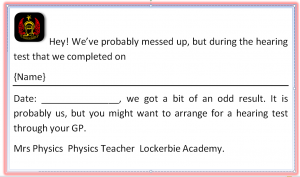
| Hey! We’ve probably messed up, but during the hearing test that we completed on
{Name}
Date: _______________, we got a bit of an odd result. It is probably us, but you might want to arrange for a hearing test through your GP.
Mrs Physics Teacher Lockerbie Academy.
|
Friday 19th May 2017
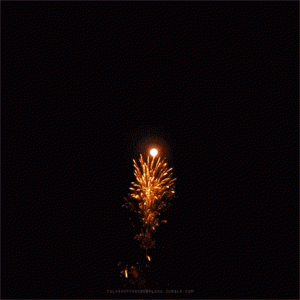
Just arrived in my inbox, just as I was having a bad afternoon.
Dear Mrs Physics and Dr Hearing,
Following you clarifications, I am pleased to inform you that your application for a Partnership Grant has been approved for an award of £2980 for the project ‘Hear today, gone tomorrow?’
To get you started, please see the attached document that includes:
- The Partnership Grants Agreement,
- The Application for Grant Payment form and New Supplier form (note the requirement of the bank document)
The teacher needs to complete the Application for Grant Payment form and the New Supplier form with the school’s bank details (account number, sort code and account name), sign and date and return to us as soon as possible. Please note the declaration written on this form. Please also ensure you double check the bank details are correct, as any errors will delay payment reaching your account.
Please also include the copy of the Partnership Grants Agreement, signed by staff at the school. Payment cannot proceed until we receive both these completed forms.
I look forward to hearing from you.
Royal Society Education Main Man.
Looks like we can start copying the forms and training some students. Getting excited. I think more staff than students, at this point are interested in having their hearing checked. I had better tell the local GPs!
Tuesday 20th June
Well I put in the order yesterday for two audiometers, and the other accessories. Apparently the money had come in from the Royal Society on 8th June, just no one had told me. I suppose it was my fault for not checking, but I’ve got SQA marking, a new timetable, one probationer short, the Celebration of Achievement talk to sort and oh yes I am off to Hungary on Wednesday or Thursday.
Here is part of the quote that I received from Interacoustics
Hi Mrs Physics
First of all I would like to introduce myself, my name is Sam and I work for Interacoustics in the position of Sales Manager/Audiologist, I have been passed your details from the office regarding your interest in our audiometers.
I have attached the brochure and the quotations for 2x AS608 with audiocup noise excluders and patient response switches, I have also added on 2 x power leads as otherwise you will be running them off batteries and as you are planning on doing high numbers of testing I thought that the power cable may be more economical however if this is not the case let me know and I will happily remove them.
If there is anything else that you need don’t hesitate to contact me.
Kind regards
Sam
Audiologist/Sales Manager
Brochure AS608
Since I last posted I’ve also had further correspondence from Dr Ethics committee, suggesting that as we are in Scotland our letter ought to obtain written consent from the child involved as well as the parents / carers. Happy to oblige. I hope we can get this rolling as soon as we return and train our Young People. Don’t think I can tackle this before the end of term.
But our partners haven’t been idle. In the background, before we heard of our successful resubmission they’ve been working on “Pinky” We really do need to ask the students for a name!
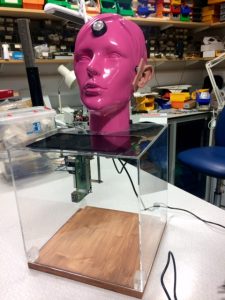
Maybe it ought to be Pinky Mcpinkface! I suppose there could be worse names.


![]()
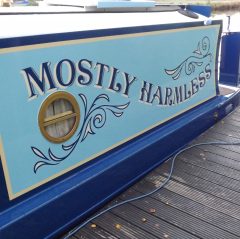

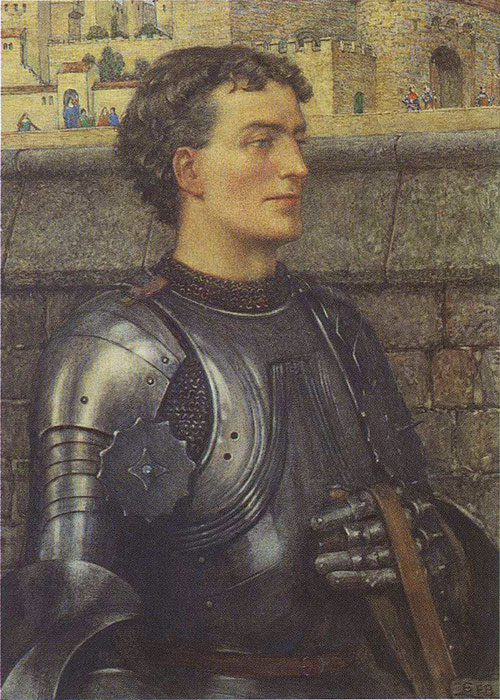
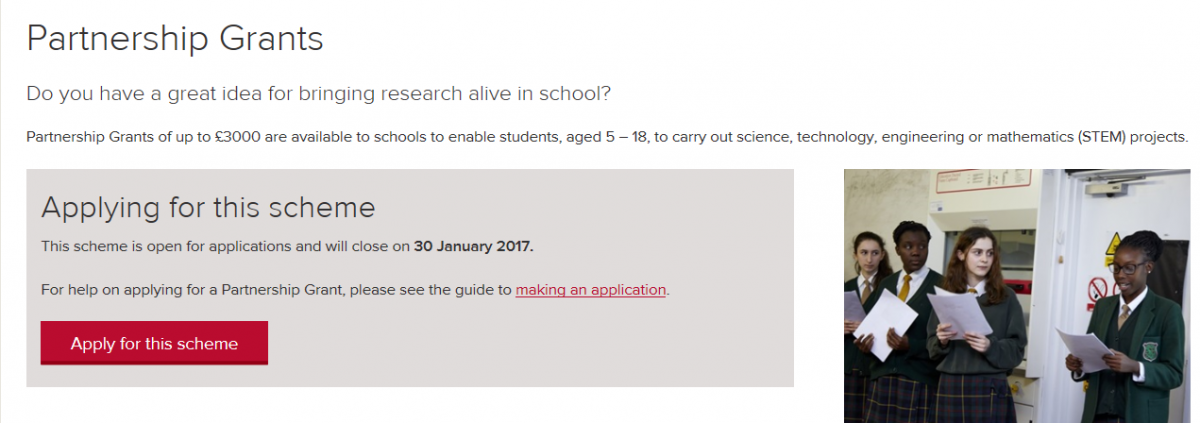
 hope I can get some advice at the ASE Conference on Friday and Saturday. Hope to see some of you there!
hope I can get some advice at the ASE Conference on Friday and Saturday. Hope to see some of you there!





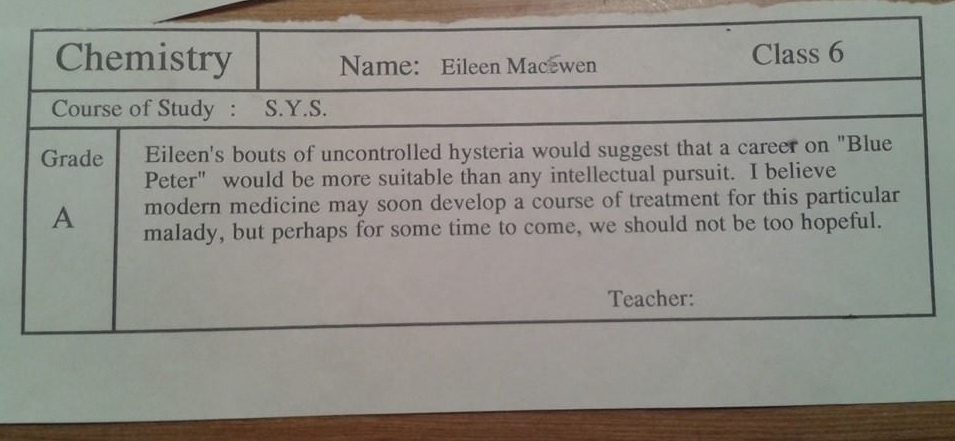
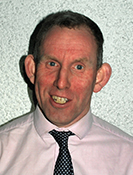
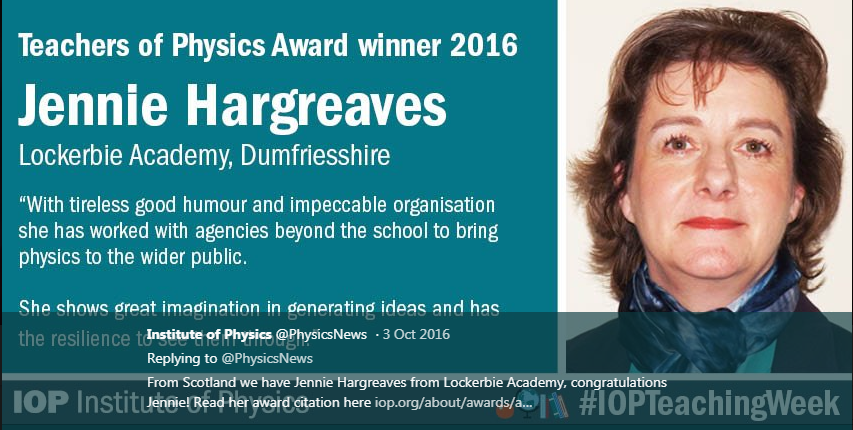
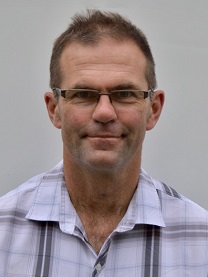


 …. I am not sure what to make of this.
…. I am not sure what to make of this.
